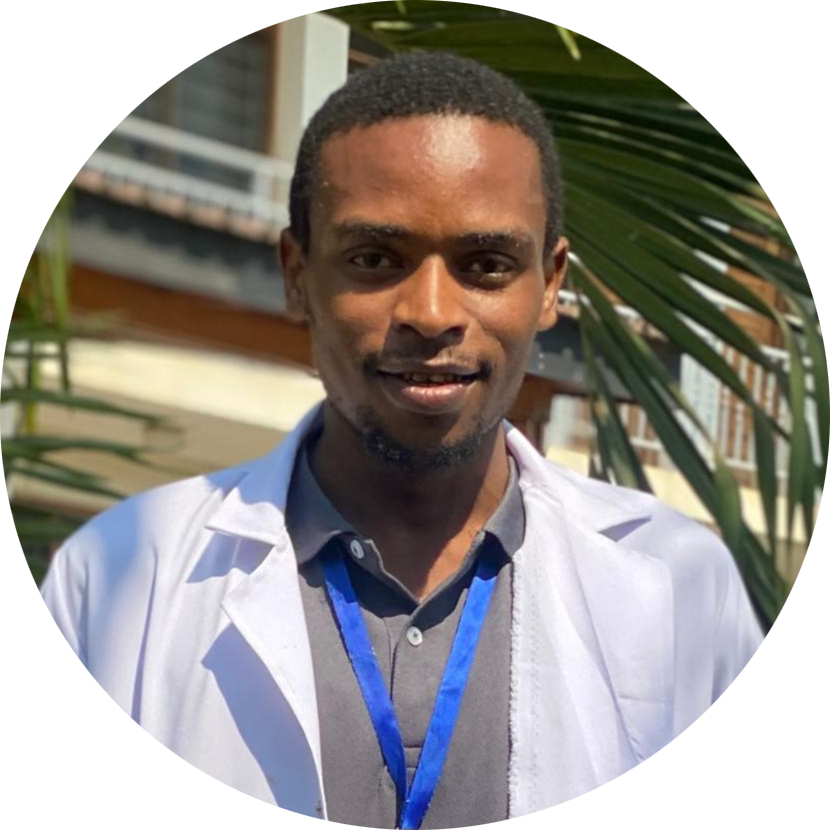ABOUT THE MILLENNIUM FELLOWSHIP - CLASS OF 2024
United Nations Academic Impact and MCN are proud to partner on the Millennium Fellowship. This year, 52,000+ young leaders applied to join the Class of 2024 on 6,000+ campuses across 170 nations. 280+ campuses worldwide (just 5%) were selected to host the 4,000+ Millennium Fellows.

UNITED NATIONS ACADEMIC IMPACT AND MCN PROUDLY PRESENT JOSIAH ISSAYA SANDETWA, A MILLENNIUM FELLOW FOR THE CLASS OF 2024.
St. Francis University College of Health and Allied Sciences | Ifakara, Tanzania | Advancing SDG 3, SDG 3 & UNAI 3

" Decision making, enhanced by Higher thinking capacity which is driven by Self motivation through learning. Millennium Fellowship is a one of platform that I believe that it will fuel my capacity of creativity on decision making and finding possibilities so that to inhence changes.
Millennium Fellowship will impact the my ability of look the environment in the eye that will bring solutions in the nation. So I will use this platform as the source of my on going path "
Millennium Fellowship Project: Combating NCDs Through Education
Combating Non-Communicable Diseases (NCDs) Through Education aims to address the growing public health challenge posed by non-communicable diseases (NCDs) through a comprehensive educational initiative. By focusing on awareness, prevention, and community engagement, the project seeks to empower individuals with the knowledge and resources necessary to reduce the incidence of NCDs, which include cardiovascular diseases, diabetes, chronic respiratory diseases, and cancers.
Goals and Objectives
The primary goal of the project is to decrease the prevalence of NCDs within the target population by fostering understanding and promoting healthier lifestyle choices. The specific objectives include:
• Increase Awareness: Educate the community about the risk factors and consequences of NCDs.
• Promote Healthy Lifestyles: Encourage behaviors such as regular physical activity, balanced nutrition, and avoidance of tobacco and excessive alcohol.
• Facilitate Access to Resources: Provide information on local health services and screenings.
• Engage Communities: Create opportunities for community involvement through workshops, seminars, and health fairs.
Target Population
The project will target diverse demographic groups, including:
• Middle-aged and older adults’ especial women and children.
Educational Strategies
To achieve its objectives, the project will implement various educational strategies, including:
• Workshops and Seminars: Hosting interactive sessions to cover topics related to NCD prevention and healthy living.
• School Programs: Integrating health education into school curricula to instill healthy habits from a young age.
• Digital Campaigns: Utilizing social media platforms to spread awareness and engage the community.
• Community Health Fairs: Organizing events that offer health screenings and educational resources.
Implementation Plan
The project will be executed in several phases:
• Needs Assessment: Identify knowledge gaps and specific community needs through surveys and focus groups.
• Development of Educational Materials: Create accessible and culturally relevant resources.
• Training of Educators: Equip community health workers and volunteers with the skills to deliver educational content.
• Program Implementation: Launch educational initiatives and monitor participation.
• Evaluation: Assess the impact of the programs on knowledge, attitudes, and health behaviors.
Expected Outcomes
The project anticipates several positive outcomes, including:
• Increased knowledge about NCDs among participants.
• Adoption of healthier lifestyle choices.
• Greater community engagement in health promotion activities.
• Reduced incidence of NCD risk factors within the community.
By focusing on education as a primary strategy for combating NCDs, this project aims to empower individuals and foster healthier communities. Through collaborative efforts and sustained engagement, we can significantly reduce the burden of non-communicable diseases and improve public health outcomes.
About the Millennium Fellow
Josiah Sandetwa is aMedical student also a student religion leader at St. Francis University.
He was Born in 1999 at Ekenywa village in Tanzania.
He is aware on community changes, so he use a lot of his time to study His community on how it operate so that once upon time in God Glory he can be one of the change maker in his community.
Right now he is an alumni of Aspire leadership program inrolled by Harvard school of Business.
He also wants to develop something in NCDs so that he can come up with a certain solution of one of great problem in his community












